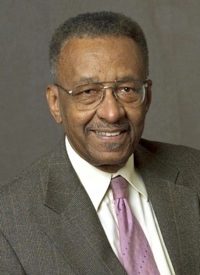
With all of the union strife in Wisconsin, Indiana and New Jersey, and indications of more to come, it might be time to shed a bit of light on unions as an economic unit.
First, let’s get one important matter out of the way. I value freedom of association, and non-association, even in ways that are not always popular and often deemed despicable. I support a person’s right to be a member or not be a member of a labor union. From my view, the only controversy regarding unions is what should they be permitted and not permitted to do.
According to the Department of Labor, most union members today work for state, local and federal government. Close to 40 percent of public employees are unionized. As such, they represent a powerful political force in elections. If you’re a candidate for governor, mayor or city councilman, you surely want the votes and campaign contributions from public employee unions. In my view, that’s no problem. The problem arises after you win office and sit down to bargain over the pay and working conditions with unions who voted for you.
Given the relationship between politicians and public employee unions, we should not be surprised that public employee wages and benefits often average 45 percent higher than their counterparts in the private sector. Often they receive pension and health care benefits making little or no contribution.
How is it that public employee unions have such a leg up on their private-sector brethren? The answer is not rocket science. Employers in the private sector have a bottom line. If they overcompensate their employees, company profits will sink. The company might even face bankruptcy.
Of course, if private companies can count on federal government bailouts, as did General Motors and Chrysler, they can maintain a comfy relationship with their unions. No such bottom line exists in the government sector. Politicians have every reason to grant benefits to their political allies, in this case public employee unions. They don’t pick up the tab; it’s unorganized taxpayers who face higher taxes.
Wisconsin’s Gov. Scott Walker says that stripping the workers of collective bargaining rights, and limiting talks to the subject of basic wages, is necessary to give the state the flexibility to get its finances in order and spare taxpayers further grief.
Consider the cushy deal for many of California’s unionized state and local police, fire and prison employees. They have what’s called a “3 percent at 50” formula that determines their retirement check. It’s based on 3 percent of the average of the three highest-paid years of the employee’s career, multiplied by the number of years on the job. An employee with 20 years’ service can retire at age 50 and receive 60 percent of his salary. Employees often boost their retirement income by putting in a lot of overtime hours during their last three years of service.
Temple University professor William Dunkelberg said in his recent CNBC article “Should Unions Have the Power to Tax?”: “The ’employers’ (taxpayers through their elected officials) have slowly lost their ability to determine the terms of employment offers. The unions now determine working hours, hiring criteria, the quantity of ‘output’ to be produced per day, the number of sick and vacation and holiday days, how their performance will be evaluated etc. No longer can the employer make an ‘offer’ for a job with requirements that fit the needs of the public institution.”
Major states like California, New York, Illinois, Ohio and New Jersey — and the federal government — are on the verge of bankruptcy. Large cities like Los Angeles; Chicago; New York; Washington, D.C.; Newark; and Detroit are facing bankruptcy as well. Does that tell you something? It tells me that we can no longer afford to do what we’ve done in the past. We must make large cuts in spending. Spending on public employee salaries is just a drop in the bucket.
Walter E. Williams is a professor of economics at George Mason University. To find out more about Walter E. Williams and read features by other Creators Syndicate writers and cartoonists, visit the Creators Syndicate Web page at www.creators.com.
COPYRIGHT 2011 CREATORS.COM



